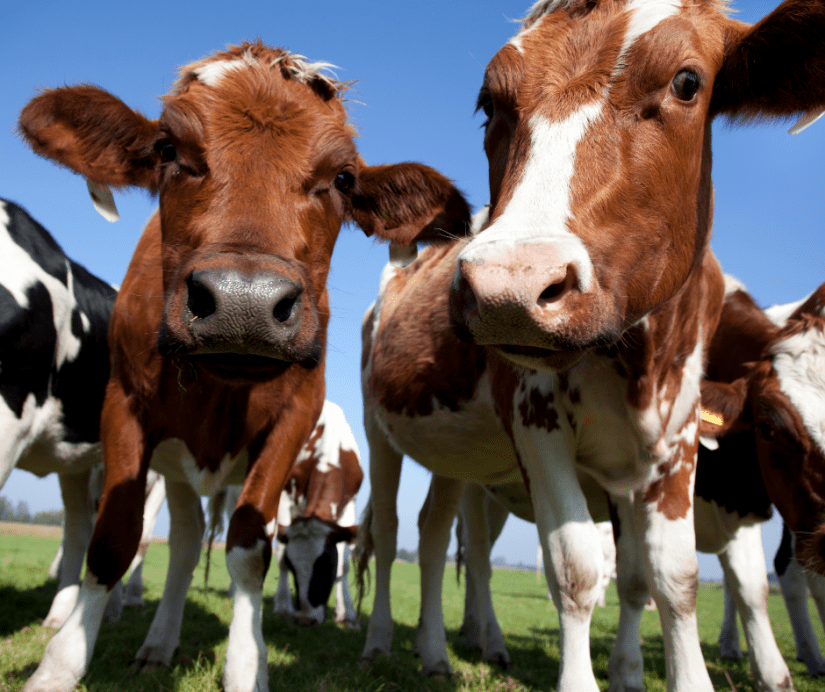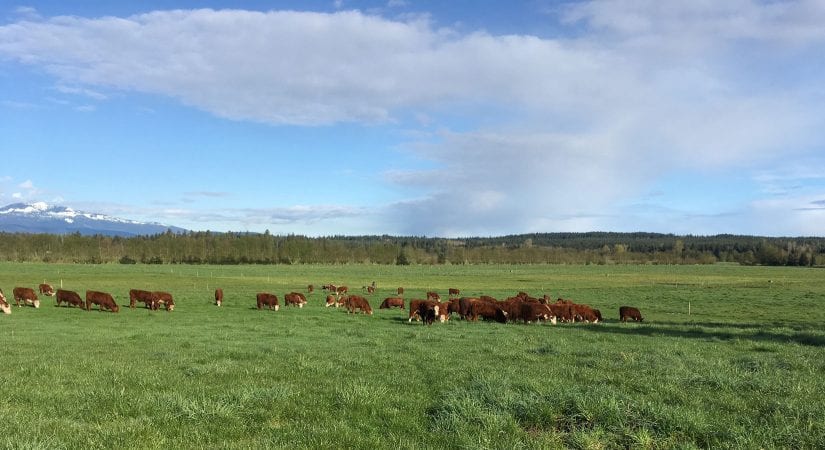Farm animals
The BC SPCA supports the initiative to establish evidence-based standards and clear expectations for slaughter without prior stunning. Nonetheless, since slaughter without prior stunning has been scientifically demonstrated to cause unnecessary suffering, the BC SPCA’s position is that governments should take more substantial action by eliminating the practice in Canada, or at the very least, by requiring immediate post-cut stunning of every animal.
The BC SPCA believes that the methods used to kill any animal must be humane. Read more about the BC SPCA’s position on humane killing and farm animal welfare.
Ritual slaughter practices are legally permitted under B.C.’s and Canada’s meat processing laws. They are also effectively exempt from prosecution under the B.C. Prevention of Cruelty to Animals Act, as they constitute “reasonable and generally accepted practices” under the Act.
We will continue to fight for stronger standards to prevent suffering of these animals, including pushing for third-party monitoring and inspection of slaughter facilities.
Everyone can influence the lives of animals through their choices – including what we eat! The BC SPCA works to empower consumers to choose higher-welfare food and supports farmers who strive to provide the best welfare for their animals.
What is higher-welfare food?
Higher-welfare food is any meat, egg or dairy product from animals raised to higher welfare standards.
Each farmed animal sector in Canada has its own Code of Practice, which outlines the minimum requirements for their care that farmers must follow. Higher-welfare food comes from farms where the animals are raised to higher standards than those outlined in the Codes.
Given the many different food labels, knowing which labels positively impact farmed animals can be challenging. Here’s how to keep farmed animal welfare at the top of your grocery list!
Check out our informational brochure on meat, egg, and dairy labels
BEST – Choose a certified label
Looking for animal welfare certification is the best way to ensure that farmed animal welfare is upheld. The animal welfare certification programs listed below are dedicated to improving the lives of farmed animals by driving consumer demand for higher-welfare food choices. The following programs:
- Certify farms that raise animals to higher standards of care than the Codes of Practice
- Verify their standards are being met through inspections of farms carried out by independent auditors
- Provide transparency to consumers as their standards are posted online for public viewing
Animal Welfare Approved
Animal Welfare Approved guarantees animals are raised outdoors on pasture or range for their entire lives using sustainable, high-welfare farming practices. On-farm care, transport, and slaughter are all audited. Independent auditors visit every farm in the program at least once yearly to verify the standards are being met.
While the farms certified under this program are primarily U.S.-based, there are a growing number of Canadian farms.
Animal Welfare Certified
Animal Welfare Certified defines farmed animal welfare as good health and productivity, natural living, and emotional well-being. This certification uses a tiered labelling strategy, to signal to consumers how the animals were raised. The higher the number, the more the animal’s environment mimics a natural environment. Transport and slaughter are not audited. To be certified, every farm must be audited on-site by an independent third party every 15 months.
While this program is based in the U.S., certified farms exist in Canada, and products can commonly be found in Whole Foods Market.
Certified Humane
Certified Humane is dedicated to improving the lives of farmed animals from birth through to slaughter. Animals are never kept in cages, crates, or tie stalls On-farm care and slaughter are audited. The standards are upheld through annual inspections of each farm by third-party independent inspectors.
While this program is based in the U.S., there are certified farms in Canada.
Organic
While this certification program focuses on farming practices that are harmonious with the environment, the Organic standards contain many animal welfare provisions that improve the lives of farmed animals – such as requiring outdoor access. Organic foods are available in many grocery stores in many communities.

GOOD – Animal welfare labels
In Canada, claims about how meat, poultry, and fish were raised are voluntary. These labels do not have a third-party verification or a legal or regulated definition but demonstrate consumer demand for higher-welfare products.
Cage-free/Crate-free
Animals are not housed in cages or crates.
The cage-free label is typically seen on egg cartons and applies to how laying hens are raised. This label means laying hens are not raised in cages, but it does not guarantee access to the outdoors.
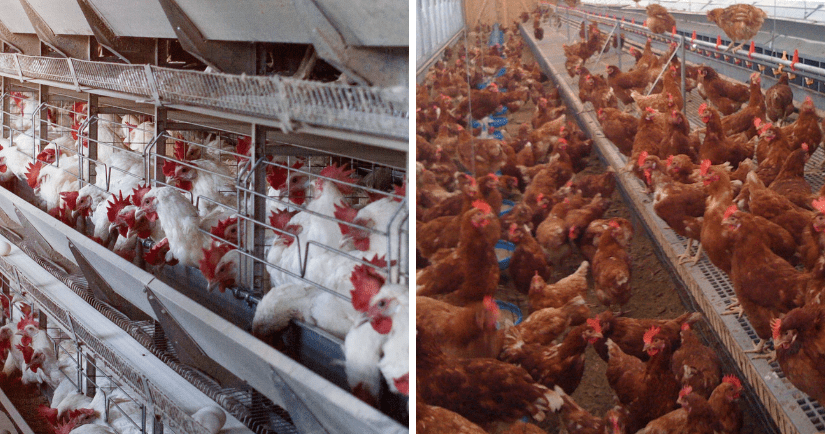
The crate-free label is typically seen on pork products and applies to how pigs are raised. There are two types of crates commonly used in pork production: farrowing crates (used for sows to give birth and nurse their piglets) and gestation crates (used to contain pregnant sows individually). This label means that pigs are not raised in crates but does not guarantee access to the outdoors.
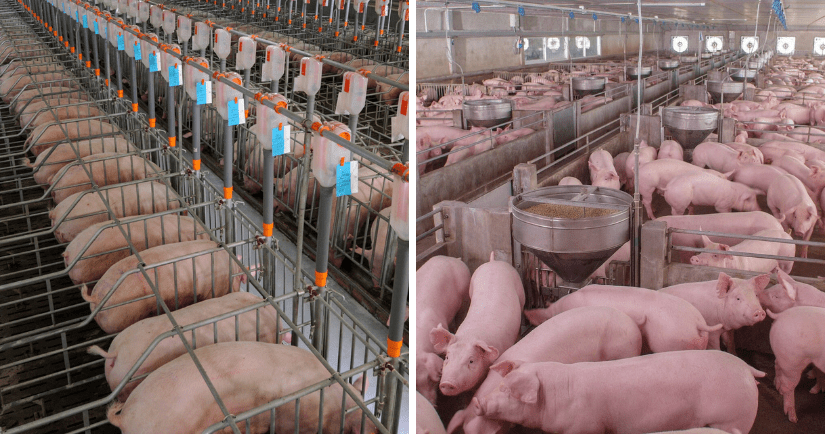
Free-run
Animals are raised cage-free and indoors.
Like the cage-free label, this label is typically seen on egg cartons. It means that the hens are not raised in cages but do not have outdoor access.
This label may also be seen on poultry meat products, but beware! This claim is misleading for turkeys and chickens raised for meat, as it is standard practice for these birds to be raised without cages. The label provides no additional benefits. Learn more about the free-run label.
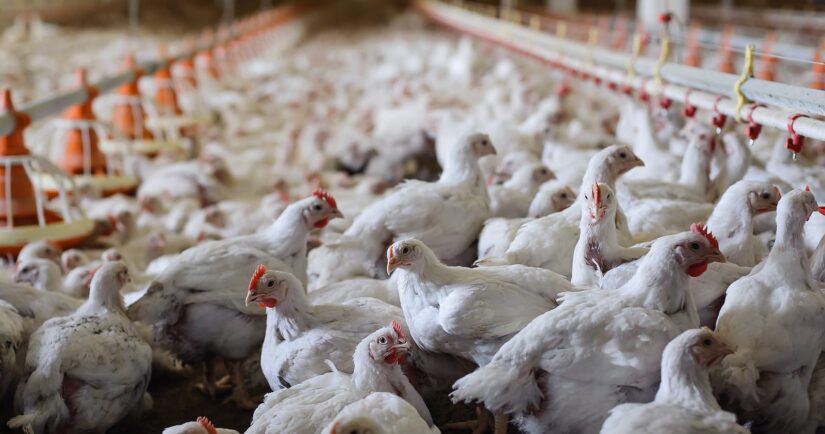
Free-range
Animals are raised cage-free with outdoor access, weather permitting.
The free-range label is typically on egg cartons, poultry meat, and pork products. While this label does mean the animals have access to the outdoors, the quality of the outdoor area and the amount of time they spend outdoors vary.
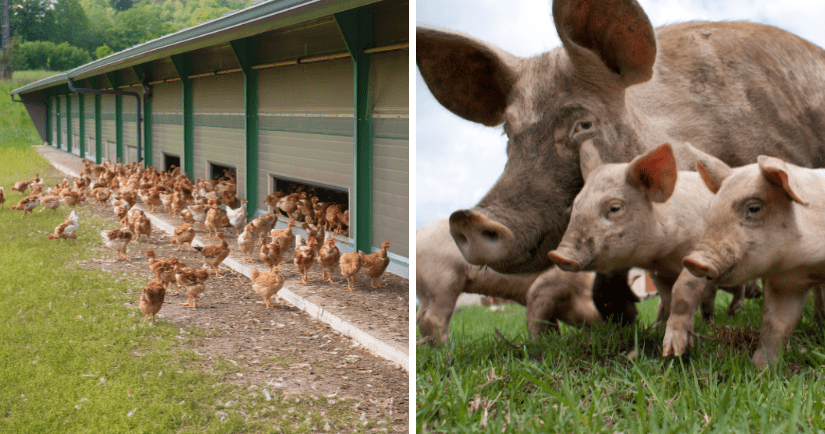
Pasture-raised
Animals are raised cage-free outdoors on pasture.
The pasture-raised label can be found on various animal products, including eggs, meat, and dairy. Although being raised outdoors benefits the animals, this label does not mean they spend their whole lives on pasture.
Grass-fed and finished
Animals are raised on pasture and fed a grass-based diet for their whole life.
The grass-fed and finished label is typically seen on dairy and beef or sheep products. Raising cattle and sheep outdoors on pasture allows them to perform their natural grazing behaviours and feed on grass.
Note: A grass-fed label does not mean the animal was outdoors for the entirety of their life. Some animals are raised on pasture and then sent to a feedlot where they are fed grains or corn to fatten them up before slaughter. Grain/corn is not a natural diet for cattle and sheep and can lead to animal welfare problems, like severe gut pain. So, be sure to look for grass-fed and finished.
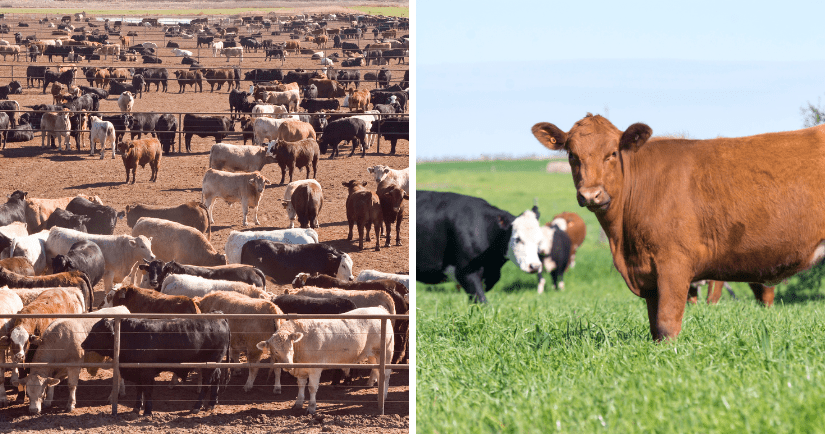
AVOID – Misleading claims
Avoid claims that imply animal welfare benefits but provide little or no improvements and there is no regulation to verify the claim. Common examples of misleading labels include:
-
- Natural claims – all-natural, naturally-raised
- Feed claims – vegetable-fed, no animal by-products
- Antibiotic claims – antibiotic-free, raised without antibiotics
- Hormone claims – hormone-free, raised without hormones
- Animal-friendly claims – animal-friendly, humanely-raised
Find out why these misleading labels often fool us.
What are you paying for?
By purchasing higher-welfare foods, you avoid conventional farming systems, which can have many animal welfare issues. You are choosing to support animal welfare benefits such as:
-
- Cage-free systems
- Enriching environments
- Expression of natural animal behaviours
- Transparency in animal production
What can you do?
When grocery shopping, opt to choose certified products whenever possible. If they are not available in-store, you can talk to your local grocer and request they be. When certified products are unavailable, look for meaningful animal welfare labels. Shopping at your local farmers market is a great way to speak directly with those raising the animals and ensure their practices align with your values. Our purchases have power. Choosing higher-welfare food reduces the demand for intensively-farmed products, and can make a positive difference in the way farmed animals are treated.
Subscribe to FarmSense newsletter
FarmSense is delivered four times a year and includes news about farmed animal welfare and updates on what the BC SPCA is doing to help further animal welfare in Canada.
B.C.’s Prevention of Cruelty to Animals Act (PCA Act) outlines generally accepted practices of animal management as a reason by which distress is legally acceptable.
Generally accepted practices of animal management are ways of handling or caring for animals that are commonly used by those responsible for them. Sometimes these practices still cause pain, suffering and distress to animals. If the practices haven’t been written down in any official document, it is up to experts like veterinarians and leaders in the relevant industry (such as animal farming, sled dogs, animal breeding or horse racing) to give expert testimony in court when there is an animal neglect or cruelty case.
Animals are better represented when practices are written and agreed to by a committee of experts that includes animal welfare experts. We call these documents ‘standards’ or ‘Codes of Practice‘. In Canada, the National Farm Animal Care Council coordinates the development of the Codes of Practice for the care and handling of farm animals. The Codes of Practice are nationally developed guidelines that serve as our national understanding of animal care requirements and recommended practices.
In 2019, the Codes of Practice were included in provincial law – through the adoption of the Animal Care Codes of Practice Regulation under the PCA Act. This means that the Codes of Practice for some industries now serve as the minimum standard for what is considered to be a ‘reasonable and generally accepted practice’ of farmed animal care in B.C.
For example, science shows that castrating (neutering) cattle is painful at any age. However, the Code of Practice only requires farmers to use pain control on animals over six months of age. Despite the fact that castrating without pain control causes pain and distress, farmers cannot be charged with animal cruelty for this distress because this is a ‘generally accepted practice’.
In order to better protect animals, it is important to continue to strengthen standards and Codes of Practice, so that generally accepted practices better align with science and societal values of how we should treat animals.
Read more about laws for farmed animals.
